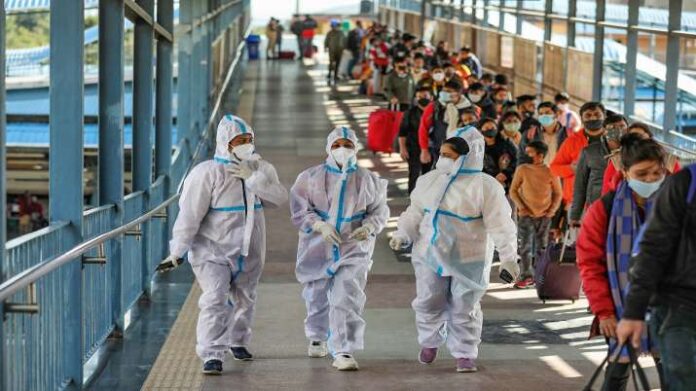| Translate This News In |
|---|
Throughout the pandemic, recurrent peaks in demand for COVID-19 testing have imposed a burden on the nation’s testing capacity, generally during a spike in cases or ahead of holiday travel.
During these times, it might be difficult for people to rapidly determine if they are infected with the virus – and to isolate themselves if they are.
From rigorous restrictions and challenges with the early test instruments to how to handle supply and demand during bursts and lulls, the United States has battled to get testing right from the start. In 2021, America struggled with how to manage the volume of examinations required in a fully reopened country with schools and employers requiring frequent testing, stresses worsened by the extremely contagious omicron strain striking just before the holidays.
This is a significant issue since scientists feel that a successful COVID-19 testing program, in conjunction with immunizations, is the key to establishing a new normal.
Throughout the epidemic, the number and types of tests have increased, turnaround times for findings have fluctuated, and additional problems have arisen, such as which tests should be utilized and when and where they should be administered.
So, how can the United States enhance access to tests, and what sort of infrastructure is required if COVID is to be an endemic disease, which means it is constantly present in the population but at low rates? What type of testing method is required to prevent future epidemics caused by variations such as delta and omicron?
According to testing specialists, the solution is to decentralize the system and send tests directly to patients, as well as to set up community centers with trustworthy rapid molecular analysis and to be able to screen people for numerous diseases at once, including COVID.
Currently, two types of viral tests are utilized to diagnose COVID-19 in the United States: antigen tests and molecular tests.


















